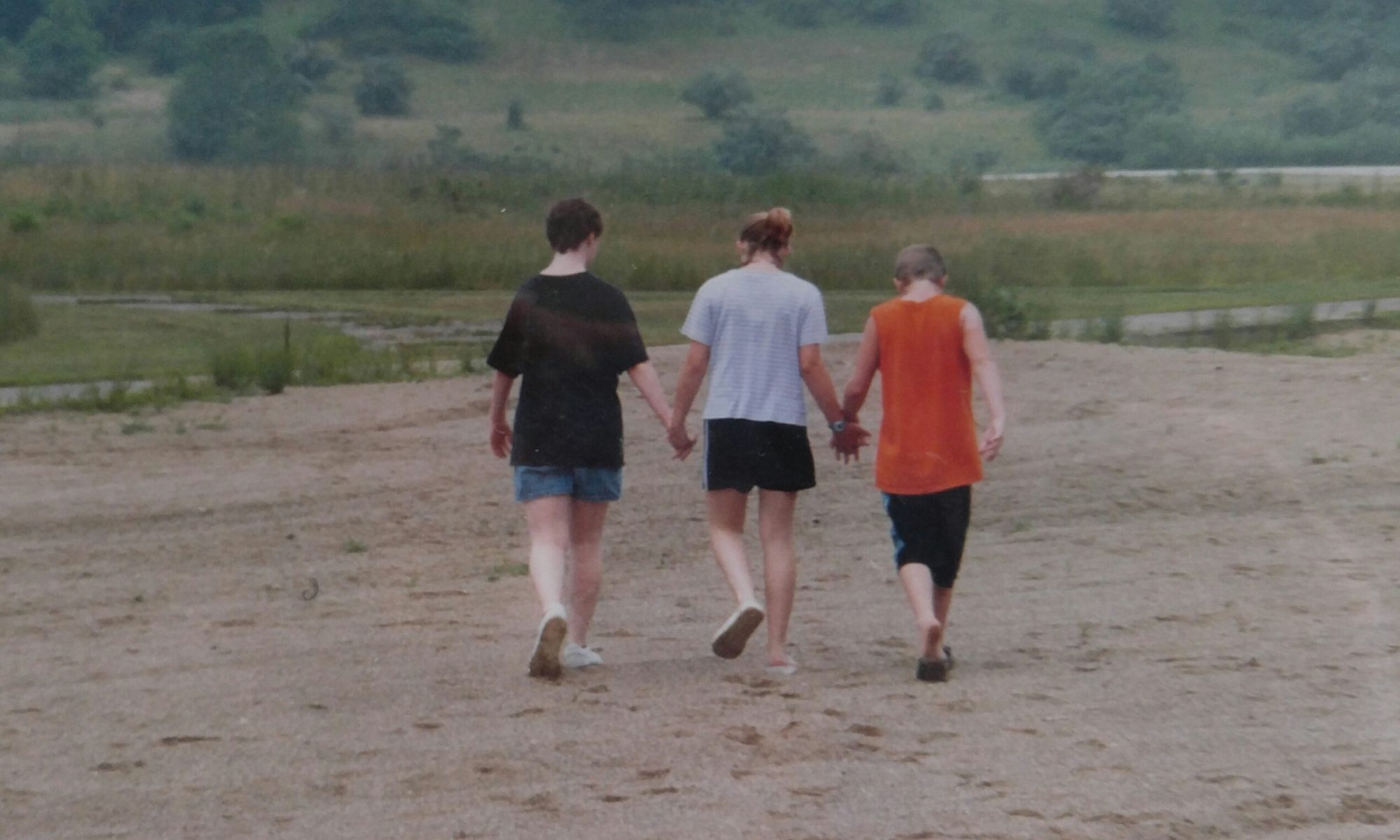Raise your hand if you have been told that your child with autism can’t feel empathy or recognize emotions in other people. Of course, some won’t be able to easily – but that’s true of “typical” people, too. Some people just can’t understand how others feel.
Rob and Casey can both read emotions in other people. Casey hasn’t always been able to as easily as she can now, but Rob has always read people. He gets very anxious if he knows someone is upset – he seems to pull their emotions into himself. When someone is angry, he hums, paces and rocks until they are calm.
When we go anywhere, Rob keeps an eye on Casey. He grabs her hand and they stick close together. Or they hold onto me – she holds my left elbow, he holds my right hand. It’s hard to walk down aisles in stores sometimes, but I always know who is missing by which hand I can move freely. When I pick the kids up from work, if he gets to me first, he asks for Casey. If she gets there first, she is ready to go. While she is always aware of where he is, he voices his concerns more.
Seeing people cry makes Casey nervous and she giggles. She will lean towards the person and get right in their face. I haven’t been able to tell whether she is trying to see if they are really upset or if she is trying to help, but you can tell by the sound of her giggle that she is nervous and doesn’t know what to do. Crying babies are especially hard for her. I’ve told her since babies can’t talk, they cry when they need something, but she seems to think that she doesn’t talk much, but she doesn’t cry to get what she wants.
If Casey doesn’t feel well, Rob likes to check on her. When she’s asleep, he pulls the blanket off her head and peeks on her to see if she’s okay. She might peek in his room if he is sick, but she wisely stays away so she won’t get sick, too. She asks me about him – if he is throwing up, if his belly hurts, if he is hungry. So I know she worries, too.
On the rare occasions that Casey as a meltdown, Rob checks on me. He seems to think I need protecting while I am talking to her and he is sympathetic to my stress. However, never doubt that he is a typical brother, too – when she starts to get calm, he likes to get close to her, point his finger and say “Casey, no fits!” which, of course, makes her furious. He laughs when she gets mad at him. Proof again that people with autism feel the same emotions that everyone else does – just in different ways, sometimes.
While Rob is more empathetic to Casey, last week, I saw proof that she watches over him, too. They took a trip to a fire station and for some reason, Rob become anxious. He began to sing his stressed song – loudly – and pacing. Their staff tried taking him outside to walk around, but he couldn’t calm down. And then Casey stepped in. As the picture shows, she went to him and let him hold her so he would feel better. I was ready to cry when I got the picture. I know she loves her little brother, but to actually see her acting like a loving, big sister is a moment I will never forget.
She shrugged it off when she got home. She told me she saw a fire truck and she got a hat. I told her how proud I was that she helped Rob – she asked for supper. A typical conversation in our house – but I know that she heard and understood me. She just cares more about supper than whether I’m proud of her. Whether she acknowledges my praise or not, I keep telling her how proud I am. I know she hears me and understands – she just has other things that are more important to her. 🙂
Your child may not pay much attention to how other people feel right now, but don’t assume they don’t know those feelings. Maybe they are like Casey and their own personal needs are just more important than what others think or feel. You also have to remember that Casey wasn’t always this empathetic. She has grown and matured so much over the last few years.
Never, ever think that how your child is doing right now is the way your life will always be. One thing I’ve learned about autism over the last 30 years is that changes always happen – sometimes so fast it makes your head spin and other times, it takes months and months of hard work for all of you before you see any changes. And sometimes, people who don’t see your child often are the ones who notice the smallest changes. Celebrate every success, no matter how small it may seem. Those little steps add up to a long trail of successes that you will want to look back on with pride!

